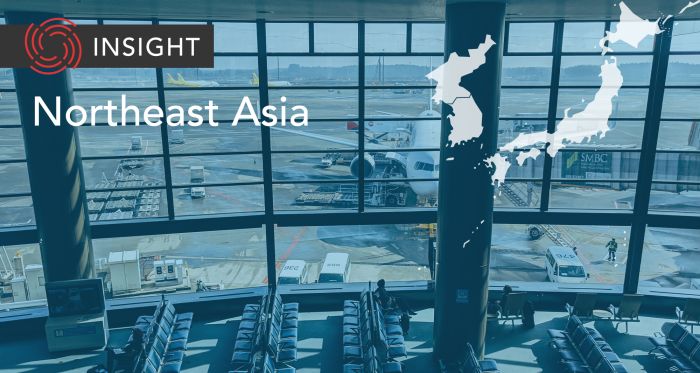The Takeaway
The surge in interest and growing commitment to use sustainable aviation fuel (SAF) in South Korea and Japan highlight the combined efforts of governments, airlines, and oil companies. Both countries are swiftly adopting SAF to enhance energy security, rebrand the aviation industry as eco-friendly, and venture into new industrial domains.
In Brief
The aviation industry, accounting for 15 per cent of global petroleum demand as per the International Energy Agency, consumes 379 billion litres of fossil fuels and emits one billion tonnes of CO2 annually — about 1.5 times Canada’s national CO2 emissions in 2020. Passenger aircraft release 285 grams of CO2 per kilometre for each passenger, a figure emphasized by the European Union’s European Environment Agency as significantly higher than other transportation modes.
Against this backdrop, SAF — sourced from eco-friendly materials like waste cooking oil and plant-based oils — has the potential to facilitate a green transition: compared to conventional fuels, SAF could cut transportation emissions by as much as 80 per cent.
South Korea’s leading oil refineries exported products equivalent to 228.5 million barrels in the first half of 2023, valued at C$29.5 billion, with aviation fuel making up 19 per cent of the value. Refineries have slowly shifted towards bio-aviation fuel, which is crucial for the industry’s long-term viability. Despite current prohibitions on most biofuels in South Korea, the Ministry of Land, Infrastructure and Transport and the Ministry of Trade, Industry and Energy have responded by stating they will revise the Oil and Alternative Fuels Business Act by 2026, fostering the production of biofuels from sources like corn, sugarcane, and waste cooking oil.
Meanwhile, in Japan, the Ministry of Land, Infrastructure, Transport and Tourism is targeting a 10 per cent substitution of conventional jet fuel with SAF by 2030. The roadmap to this goal — representing Japan’s earnest push towards a less carbon-intensive aviation industry — remains under deliberation by a joint government-industry council.
Implications
At present, neither Japan nor South Korea has a domestic producer of SAF, making the immediate adoption of this fuel challenging. This lack of domestic production necessitates dependence on international suppliers, with major airlines like Korean Air and Japan Airlines sourcing SAF from Finland-based Neste, the world’s largest biofuel producer. While these larger airlines have made some headway in adopting SAF, low-cost carriers (LCCs) lag behind. The primary challenges for LCCs are supply chain constraints and the higher cost associated with SAF. In fact, SAF is currently three to eight times more expensive than traditional aviation fuel, presenting a financial challenge even for major airlines. Additionally, the absence of local infrastructure for SAF storage and distribution further complicates its widespread adoption.
According to the International Air Transport Association (IATA), a trade association representing airlines that account for 83 per cent of global air traffic, flights using biofuels constituted a mere 1.5 per cent, or approximately 450,000, of all flights in 2022. However, SAF’s prospects are not all bleak. Recognized as a certified jet fuel compatible with existing aircraft and distributable via current pipeline infrastructure, SAF presents unique advantages. This has spurred corporations like South Korea’s GS Caltex and HD Hyundai Oilbank, as well as Japan’s ENEOS, to announce plans for SAF production and plant construction. Refineries are typically located along coastlines to facilitate crude imports and product exports. Given their large scale and the associated potential environmental risks, these facilities are often located away from densely populated areas for safety considerations. The refining industry’s potential shift to include more biofuel production offers opportunities for balanced regional growth, endorsed by both governments and industry insiders.
Regulatory changes are further amplifying SAF’s prominence. By 2025, passenger aircraft refuelled within the EU must blend at least two per cent of biofuel. This ratio is projected to rise to six per cent by 2030 and 70 per cent by 2050. Given these international standards and the imperative to ensure energy security, both Japan and South Korea recognize the increasing significance of SAF’s introduction, production, and use for the sustainable growth of the aviation sector.
What’s Next
- Rising airfares
The IATA forecasts an escalation in international flight fares over the next decade. The agency attributes this potential uptick to airlines’ increased uptake of SAF to meet governmental directives. Passengers flying with Japanese and South Korean airlines may face higher air travel costs.
- The global scramble for resources
There is a growing demand for waste cooking oil, a primary raw material for biofuels. With its soaring global demand, supply shortages and price hikes are imminent. Concurrently, Japanese and South Korean companies are stepping in to support technological developments, allowing biofuel production from non-edible oils.
- ESG alignment
Using SAF aligns with the environmental, social, and governance (ESG) values that many businesses are working toward. Cargo clients using SAF-powered cargo planes in their operations can earn recognition for their carbon reduction efforts. With airlines like Japan’s ANA starting to issue certifications to cargo clients for SAF usage, it is anticipated that SAF will further bolster ESG management across a variety of businesses.
• Produced by CAST’s Northeast Asia team: Dr. Scott Harrison (Senior Program Manager); Momo Sakudo (Analyst); Tae Yeon Eom (Analyst); and Sue Jeong (Analyst).




